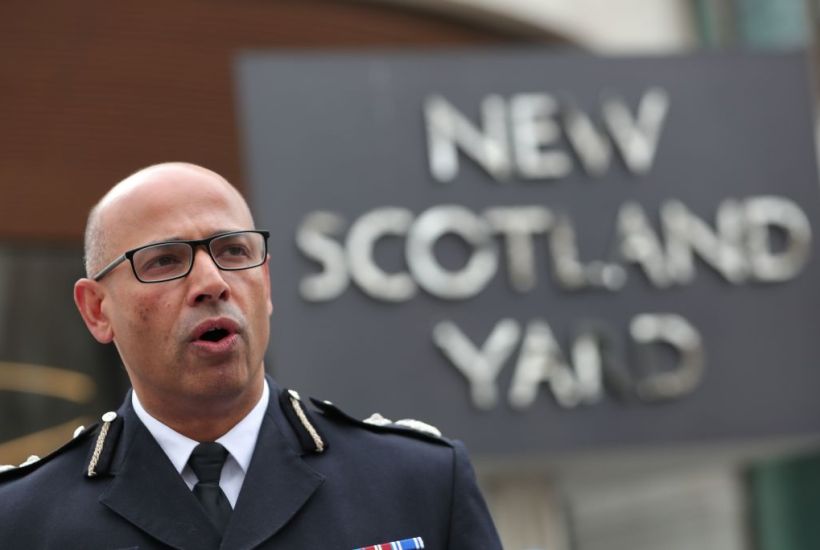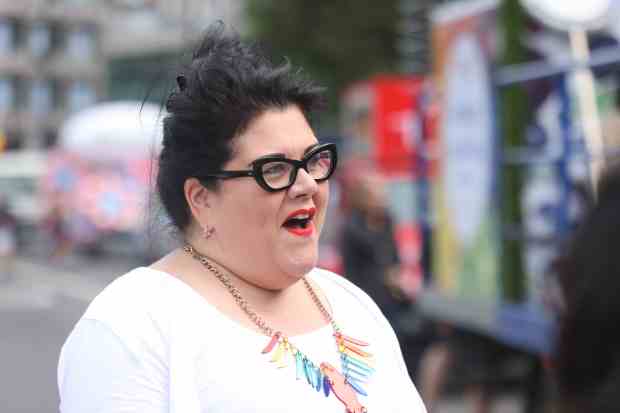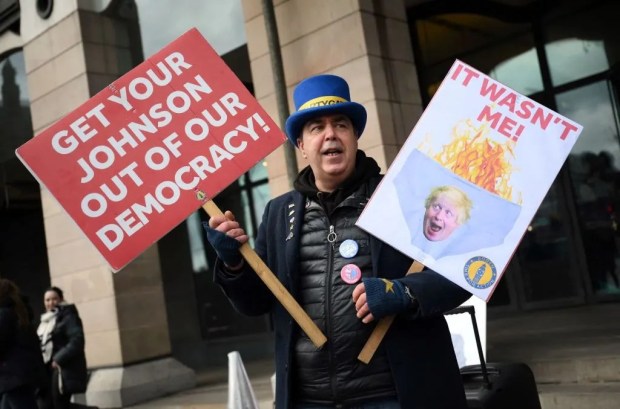This keeps me up at night. Have you come across this expression of pained anguish lately? This isn’t about conversations with friends or loved one’s on Covid, returning to work or never working again. I’m talking about news stories on national security and terrorism, where experts and counter-terrorism officials are interviewed and feel duty-bound to disclose that they can’t sleep at night.
The number of these individuals who haven’t had a decent night’s sleep of late is frankly quite alarming. ‘This keeps me up at night,’ terrorism scholar John Horgan told Slate’s Aymann Ismail last November. He was referring to the gathering storm of far-right extremism in America. ‘I think we’re truly in free fall, and don’t have any sense of how to grasp this,’ he said.
Three weeks later, it transpired that Elizabeth Neumann, the former lead at the Department of Homeland Security in the US, was also sleep deprived. She reportedly said that the mass radicalisation of Trump supporters ‘keeps her up at night worrying about where the country is heading.’
A year earlier, counter-terrorism expert Courtney La Bau wrote a piece for CNN entitled: ‘I work to fight terrorism. This is the threat that keeps me up at night.’ After establishing that she had ‘seen the best and the worst of humanity’, and that ‘the range of threats that our nation faces is very real — from the rise in lone wolf and homegrown attacks to the persistent existence of the ideology behind Isis,’ La Bau wrote that:
‘Those aren’t the only security risks that are keeping me up at night. Right now, what concerns me most is the widening polarisation in our country, because this is the kind of division that feeds the seeds of hate at the root of every kind of terror attack.’
Now, following the conviction of a 16-year far-right extremist, Neil Basu, the Met Police’s Assistant Commissioner, has made a similar admission about sleepless nights. ‘Such is the threat,’ the Daily Mail reported this week, ‘Mr Basu admits he has had ‘sleepless nights’ worrying about his own three sons – twins aged 19 and a 21-year-old – being drawn in by extremist groups.
‘In my job as head of counter-terrorism policing, I see the threats that come across my desk every day and of course I worry,’ he says. ‘But it’s in my role as a dad that I worry the most.’
This, I guess, is supposed to strike a democratic and non-judgemental tone: even Basu, a distinguished and highly-ranked police officer, has worries about what his own kids might be up to. But it’s not exactly reassuring. If Basu doesn’t know what’s going on inside his own household, why should we trust him and his underlings to police the far greater threats outside it?
Basu, I suspect, is exaggerating. Is he really worried that his children might become radicalised in their bedrooms and start plotting acts of far-right or jihadi terrorism? Whether he is or not, he gets his point across when he says, with glaring insincerity: ‘This could happen to any family.’
So what else is going on when counter-terrorism officials and experts tell us about their sleepless nights? The first and most obvious answer is that it’s a way of underlining the severity of the threats we face. Things must be serious if the spooks and experts can’t sleep at night.
The second, and perhaps less obvious, answer is that it’s proclamation of professional exclusivity. When the terrorism experts say they can’t sleep at night, what they’re also saying is, in effect, ‘I’m an insider privy to information that you, the layman, cannot know.’ It’s a variant of what Ben Sixsmith has brilliantly documented as the ‘historian hereing’ trope, where experts from any given field impertinently announce their credentials on social media before correcting some perceived misapprehension or falsehood. And it’s every bit as self-important, elevating the counter-terrorism insider to the status of a clairvoyant-martyr who can’t sleep and who must carry a burden that would prematurely age the rest of us mere mortals.
The fight against terrorism is no doubt challenging and exhausting work for those on the frontline. But we do not need to know about the sleeping habits or family life of those who patrol it. And if terrorism experts want to get a better night’s sleep they should probably spend less time on Twitter or watching CNN.
Got something to add? Join the discussion and comment below.
Get 10 issues for just $10
Subscribe to The Spectator Australia today for the next 10 magazine issues, plus full online access, for just $10.




















Comments
Don't miss out
Join the conversation with other Spectator Australia readers. Subscribe to leave a comment.
SUBSCRIBEAlready a subscriber? Log in